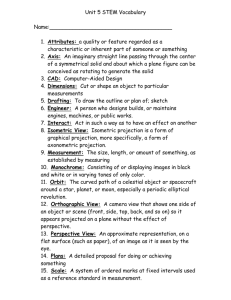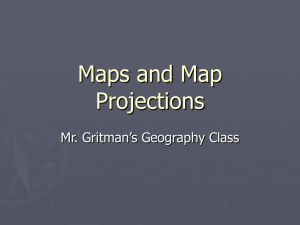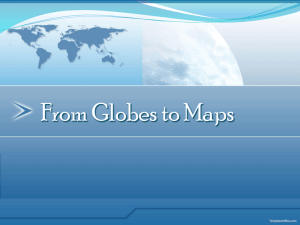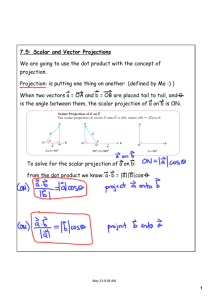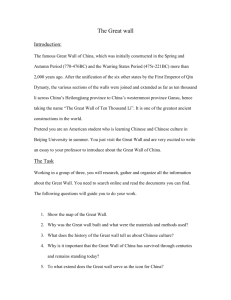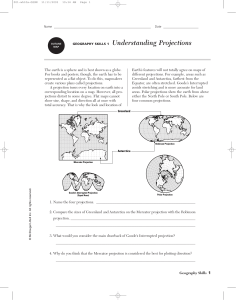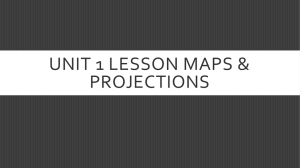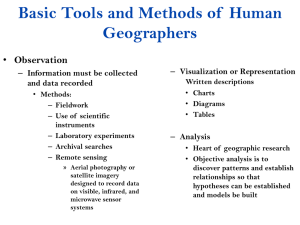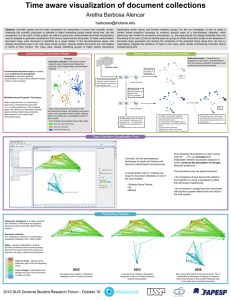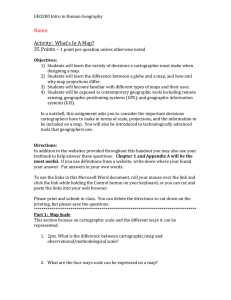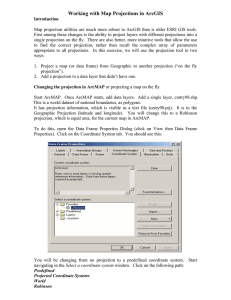Unit 1 - Map Projections
advertisement
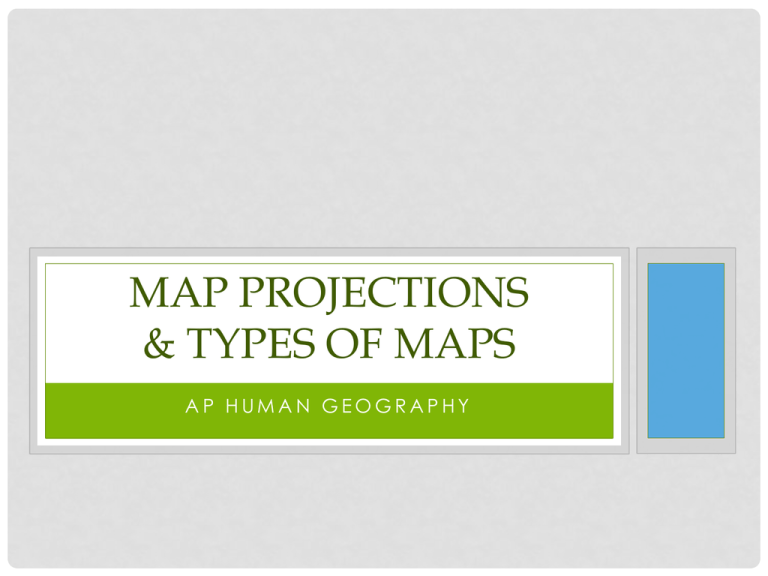
MAP PROJECTIONS & TYPES OF MAPS AP HUMAN GEOGRAPHY MAP PROJECTIONS MAP PROJECTIONS • Cartographers have to deal with the problem of making maps of a spherical earth onto a flat surface this leads to distortions • Shape can be distorted • Distance between two points can increase or decrease • Relative size may be altered, areas can appear much larger than they really are • Direction can be distorted ROBINSON PROJECTION ROBINSON PROJECTION • More accurately shows the area near the poles • Used to show proportions of land to water • Distorts cardinal directions and distance MERCATOR PROJECTION • Used primarily for navigation since it is easiest to plot direction • Increased distortion the further away from the equator • Makes the North look much larger GALL-PETERS PROJECTION GALL-PETERS PROJECTION • Focuses more on land area accuracy • Released in 1974, based off a 1800 design • More accurately shows southern hemisphere as larger than northern hemisphere • Areas near the poles are stretched horizontally GOODE HOMOLOSINE PROJECTION DYMAXION PROJECTION TYPES OF MAPS MAPS AS A TOOL TO UNDERSTAND SPATIAL PATTERNS • Maps can give insight to how a phenomenon is occurring and provide the starting point for understanding the why Example: A doctor figures out why a group of specific people are getting cholera by using a map to see they were all living in the same general area and using the same water pumps, which were causing the cholera outbreak CHOROPLETH MAPS • A map showing quantity by area. It uses shades of colors to show intervals ISOLINE MAPS • A map that is used to display distributions. It consists of lines that connect to show equal value PROPORTIONAL (GRADUATED) CIRCLE MAPS DOT MAPS CAUTION: MAPS CAN BE DECEIVING! • Every map is flawed in some way • Cartographers can be wrong, include inaccurate data, or make you perceive something differently that they want you to see by distorting the map • Glancing at that map, we’d think California, Texas, Florida, and New York were horribly dangerous places to live • The problem is that we’re basically looking at a map of population. Of course the more people live in a place, the more crimes (all else being equal) will be committed there • These maps, from ads for Verizon Wireless, show 3G network coverage by Verizon and AT&T. The impression they give is that most of the US isn’t covered by AT&T at all • BUT if you look at the map of population density, you will see that areas with the most people are covered

